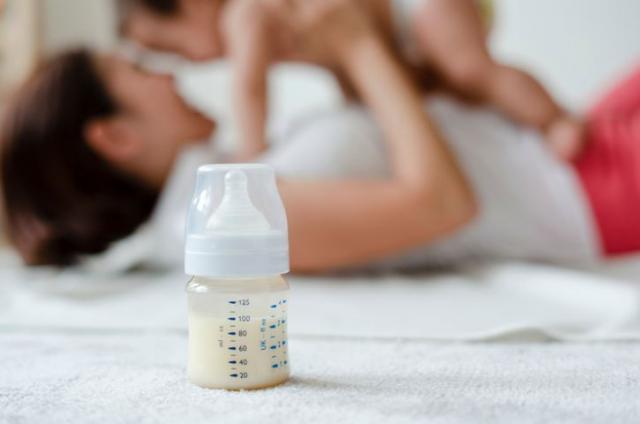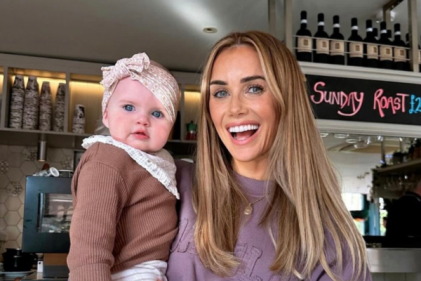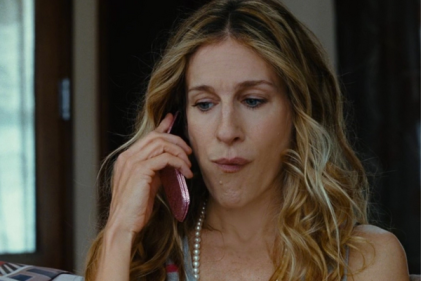Like all mammals, human babies depend on breast milk in the early part of their development. It is quite impossible to find alternatives that combine all the nutrients and antibodies essential for the baby to grow and fight infections, all the while being completely sterilised, safe, and easy to digest. The mother passes germ-fighting antibodies to the child through breastfeeding.
However, not all babies have the privilege to be exclusively breastfed. Babies with compromised immune systems or born prematurely might have a hard time getting breastfed. Sometimes parents might also consider using formula due to various health complications in either mother or child. And whilst there still remains a certain stigma attached to formula feeding, and of course, formula feeding isn't equal to breastfeeding, it is still a viable option for parents who are unable to breastfeed.
So, if you are formula feeding, here's some information about it, and some basicis on how to prepare and storing it.
What Is in Baby Formula?
Baby formula is usually processed from cow milk. While cow milk is perfectly suitable for their calves, they don't exactly mimic the properties of human breast milk. To make sure it contains the required nutrition, cow milk is combined with other nutrients including fats, carbohydrates, vitamins, and minerals.
There are other elements added like probiotics, antibiotics, and lactose. There is also a stabilizer in the mixture to make it easier for the formula to mix with water. Some soy-based formulas also exist which are suitable for babies who are allergic to the protein in cow milk.
If you don't want any added sweetener or flavors in the formula, you can try some organic baby formula. As well as being completely organic, they also don't have any preservatives or antibiotics.
Know Your Formula
Formula comes in various forms. Some are powders that you have to dissolve in water, whereas some are in liquid forms ready-to-use. The latter is suitable for cases when you don't have access to boiled water. All forms of the formula are equal from a nutritional perspective. However, their prices and convenience are what differentiates them.
Some powdered formulas can be hard on the baby’s digestive system, they might develop constipation from these formulas. But with liquid ready-to-use formula, the chance of getting constipated is quite low.
Check the Date and Instructions before Buying
Check the date of expiration and use-by dates when you buy baby formula. Formulas generally have a very limited expiration date, sometimes it's just a month. So before you buy large containers or packages, make sure your baby will be able to consume them within the expiration date.
To reduce waste, you can always go for smaller containers. That way, there's less chance of them being spoiled or expired before you have the chance to use them.
Wash Your Hands
It might sound like a no-brainer, but washing your hands should be the first step in preparing formulas. Wash your hands with soap and dry them before you start working. Don't forget to clean up the workspace too.
Prepare the Bottles
One of the major deterrents for formula feeding might be the effort new parents have to put in for cleaning up and washing the feeding bottles. However, once you know the drill it will become a fast routine to you.
If you think you have to sterilize the bottles before each use, rest assured that it is completely fine just washing them well before. But you need to sterilize all the bottles when you first get them.
There are several ways to sterilize the bottles. You can boil them in water for five minutes, use an electric steam sterilizer or a microwave steam sterilizer. For later use, you can just wash them with mild dish soap and water. To get them washed properly, use a bottle brush.
Measure and Prepare the Formula
Getting the measurement right is the most crucial part of preparing formulas. Read the package instructions carefully before you start. Get the right amount of water in the bottle and scoop up the powder according to the instructions using the scoop that comes with the container. Level the top with a sterilized knife or level it off with the edge of the container. Drop the scoops into the water and cap off the bottle. Vigorously shake the bottle for about ten seconds to get the formula fully dissolved.
Test the Temperature
To check whether the formula is at the right temperature for the baby to feed, sprinkle a few drops on the inside of your wrist. If it feels lukewarm, or just slightly warm, it is perfect for the baby.
Whether you need to warm up the formula before feeding, is completely up to your baby's preference. If the baby likes warmer formula then you can warm it. Otherwise, it is completely fine to feed the baby room temperature formulas. There are no added health benefits in feeding warmed-up formulas.
Store the Formula
Once you have prepared a formula you can store it at room temperature for about two hours. If your baby is a slow feeder and can't finish the bottle within two hours, you need to empty that bottle after two hours and make a fresh bottle because after two hours the formula can develop bacteria. If you store the bottles in the refrigerator, you can keep them for 24 hours.
Make sure you label each bottle with the time that you have prepared it. That way, you can easily figure out whether the bottles are still okay to use or if you need to empty them.
Don't Water it Down
The water content in the formula is crucial for babies. If you have ever wondered why babies don't need to drink water, it's because they already have the required water level in their bodies. As adults, 55-60% of our body contains water. But for babies, it is almost 75%; at least when they are less than six months old. So when you add more water to their system it just dilutes their blood, possibly resulting in various health complications. So never consider watering down formulas and always maintain the proportion as instructed.
Tap Water or Bottled Water: Which One Should You Use?
Despite the common adage that bottled water is safer than tap water while preparing baby formula, you should use tap water (assuming you can drink it).
For one, bottled water is not actually sterile unless they are manufactured especially for babies. Also, bottled water doesn't contain fluorides and other natural minerals, which are quite required for babies. Fluorides help the teeth formation. Another con of using bottled water is that it might get contaminated from the plastic.
If you are unsure about using tap water you can always boil and filter it. Either boil the water on a stovetop or in an electric kettle. After boiling, wait for at least 30 minutes to let the water cool down to room temperature. If you use hot boiling water for the formula, the high temperature might break apart some of the nutrients, making it less effective.
For more convenience, you can refrigerate some boiled water. But don't use the bottles that have been in the refrigerator for more than 24 hours.
Can You Prepare Formulas in Advance and Store Them?
While making each bottle just before feeding is the best option, sometimes busy parents might want to prepare them in batches. It is completely fine if you want to prepare all the bottles for the day and store them at the back of the refrigerator. Just make sure you are not using them after they’ve been in for more than 24 hours. And make sure to reheat them so they are at room temperature.
Can You Use a Microwave to Reheat Formulas?
Microwaving might sound the most convenient way to quickly reheat a formula bottle, but it is just a big NO-NO. Microwaving might cause hot spots. Uneven heating can scald babies' mouths. Besides, when you microwave the formula, some nutrients might break up from the excess heat.
What you need to do instead of microwaving is slowly heat the bottles. Just fill up a bowl with warm water and place the formula bottle in that bowl, after several minutes it should be warm enough for the baby. Using a bottle warmer might be another convenient option.
The Bottom Line
Starting formula feeding can be challenging for both the parents and the baby. It's only going to work if you know how to properly prepare and store the formula. Formula feeding can be expensive, so you need to learn these tricks so that you don't waste any of them.
Before you start formula feeding, check with your baby's paediatrician to know whether your baby is ready for it. And once you decide on formula feeding, gradually transition your baby. Change the brand and see what works well with your baby. Shifting to formulas has to be a slow process and leapfrogging will just do more harm than good.












